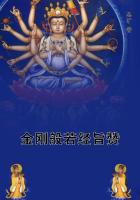Indians are Indians, though they wear the green sweater and overalls of civilization and set upon their black hair the hat made famous by John B.
Stetson. You may meet them in town and think them tamed to stupidity. You may travel out upon their reservations and find them shearing sheep or hoeing corn or plodding along the furrow, plowing their fields; or you may watch them dancing grotesquely in their festivals, and still think that civilization is fast erasing the savage instincts from their natures. You will be partly right --but you will also be partly mistaken. An Indian is always an Indian, and a Navajo Indian carries a thinner crust of civilization than do some others; as I am going to illustrate.
As you have suspected, the Happy Family was not following the trail of Ramon Chavez and his band. Ramon was a good many miles away in another direction;unwittingly the Happy Family was keeping doggedly upon the trail of a party of renegade Navajos who had been out on a thieving expedition among those Mexicans who live upon the Rio Grande bottomland. Having plenty of reasons for hurrying back to their stronghold, and having plenty of lawlessness to account for, when they realized that they were being followed by nine white men who had four packed horses with them to provide for their needs on a long journey, it was no more than natural that the Indians should take it for granted that they were being pursued, and that if they were caught they would be taken back to town and shut up in that evil place which the white men called their jail.
When it was known that the nine men who followed had twice recovered the trail after sheep and cattle had trampled it out, the renegades became sufficiently alarmed to call upon their tribesmen for help. And that was perfectly natural and sensible from their point of view.
Now, the Navajos are peaceable enough if you leave them strictly alone and do not come snooping upon their reservation trying to arrest somebody. But they don't like jails, and if you persist in trailing their lawbreakers you are going to have trouble on your hands. The Happy Family, with Luck and Applehead, had no intention whatever of molesting the Navajos; but the Navajos did not know that, and they acted according to their lights and their ideas of honorable warfare.
Roused to resistance in behalf of their fellows, they straightway forsook their looms, where they wove rugs for tourists, and the silver which they fashioned into odd bracelets and rings; and the flocks of sheep whose wool they used in the rugs and they went upon a quiet, crafty warpath against these persistent white men.
They stole their horses and started them well on the trail back to Albuquerque--since it is just as well to keep within the white men's law, if it may be done without suffering any great incon venience. They would have preferred to keep the horses, but they decided to start them home and let them go. You could not call that stealing, and no one need go to jail for it. They failed to realize that these horses might be so thoroughly broken to camp ways that they would prefer the camp of the Happy Family to a long trail that held only a memory of discomfort; they did not know that every night these horses were given grain by the camp-fire, and that they would remember it when feeding time came again. So the horses, led by wise old Johnny, swung in a large circle when their Indian drivers left them, and went back to their men.
Then the Navajos, finding that ****** maneuver a failure--and too late to prevent its failing without risk of being discovered and forced into an open fight -got together and tried something else; something more characteristically Indian and therefore more actively hostile. They rode in haste that night to a point well out upon the fresh trail of their fleeing tribesmen, where the tracks came out of a barren, lava-encrusted hollow to softer soil beyond. They summoned their squaws and their half-grown papooses armed with branches that had stiff twigs and answered the purpose of brooms.
With great care about leaving any betraying tracks of their own until they were quite ready to leave a trail, a party was formed to represent the six whom the Happy Family bad been following. These divided and made off in different directions, leaving a plain trail behind them to lure the white men into the traps which would be prepared for them farther on.
When dawn made it possible to do so effectively, the squaws began to whip out the trail of the six renegade Indians, and the chance footprints of those who bad gone ahead to leave the false trail for the white men to follow. Very painstakingly the squaws worked, and the young ones who could be trusted.
Brushing the sand smoothly across a hoofprint here, and another one there;walking backward, their bodies bent, their sharp eyes scanning every little depression, every faint trace of the passing of their tribesmen; brushing, replacing pebbles kicked aside by a hoof, wiping out completely that trail which the Happy Family bad followed with such persistence, the squaws did their part, while their men went on to prepare the trap.
Years ago--yet not so many after all--the mothers of these squaws, and their grandmothers, had walked backward and stooped with little branches in their hands to wipe out the trail of their warriors and themselves to circumvent the cunning of the enemy who pursued. So had they brushed out the trail when their men had raided the ranchos of the first daring settlers, and had driven off horses and cattle into the remoter wilderness.















